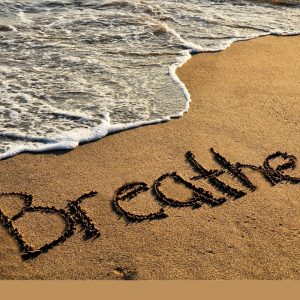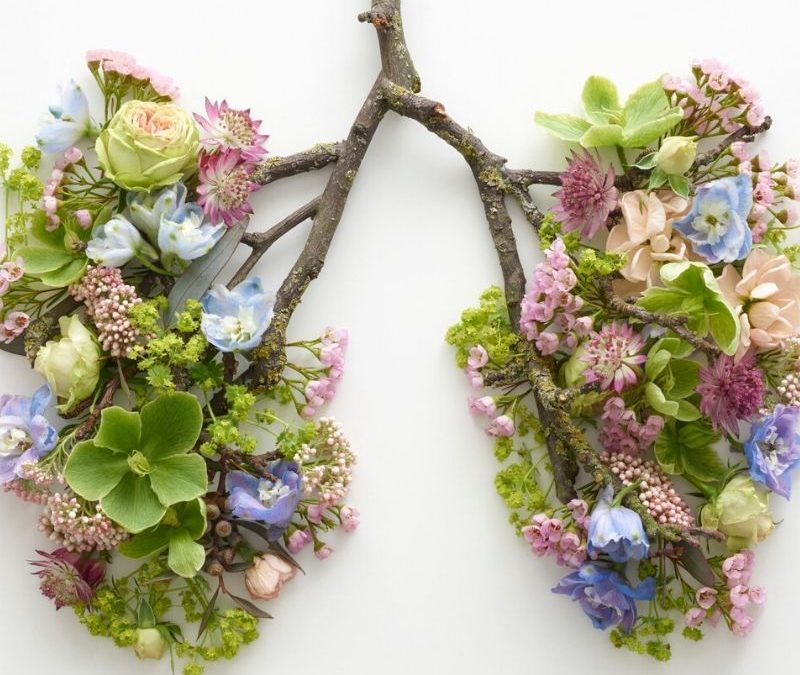Breathing – a simple but under utilised resource?? How do you know if you are breathing properly??
Most people breathe to live – obviously but there is more to the breath than meets the eye!!
Learning to breathe ‘properly’ is something that some of us have to relearn. I know as a yoga teacher, teaching people to breathe ‘properly’ can be challenging! A lot of people – reverse breathe!! Rather than breathing into the belly and expanding the belly when we breathe in, they breathe into the chest and pull the belly back towards the spine!
Not breathing fully into the belly can mean that the muscles of the neck and shoulders become tight as the upper half of the body is doing all the work.
The benefits of bringing awareness to your breath are measurable. By learning a few simple breathing techniques, you can:
- Reduce stress levels in your body
- Lower your heart rate
- Lower your blood pressure
- Improve diabetic symptoms
- Reduce depression
- Better manage chronic pain
Whilst we breathe in and out all day, every day without a thought, when was the last time you actually took a deep breath? Did you know that deep breathing is one of our easiest, most convenient and natural tools to combat issues like stress and anxiety, reduce pain and blood pressure and even aide in digestion?
Have you ever noticed how you breathe when you feel relaxed? The next time you are relaxed, just before falling asleep, or napping in your favourite armchair, or when you wake up in the morning, take a moment to notice how your body feels.
Breathing exercises can help you relax.
Learning how to breathe correctly is one of the best ways to lower stress in your body. This is because when you start to focus on your breath and slow it down, it sends a message to your brain to calm down and relax. The brain adjusts your autonomic nervous system to lower your blood pressure, heart rate and breathing rate. Slower, deeper breathing also stimulates the release of endorphins, our feel good hormones.
Your lung capacity is the total amount of air that your lungs can hold. Over time your lung capacity and lung function typically decrease slowly as you age, starting from your mid-20s. Some conditions like chronic obstructive pulmonary disease (COPD) and asthma can significantly speed up these reductions in lung capacity and functioning. This leads to difficulty in breathing and shortness of breath. An illness like pneumonia, or the more recent Covid-19 virus, can have an acute effect on your lung function, and recovery can take a while.
So, the way you breathe affects:
1. Your whole body. Breathing exercises are a good way to relax, reduce tension, and relieve stress.
2. Your health. Breathing well and improving your lung capacity can improve your exercise capacity/daily activity tolerance and help prevent illness by ensuring your lungs are well ventilated and ‘flushed out’ regularly. If you have been ill, breathing exercises will help in your recovery, ensuring there is no residual mucus left in your lungs and avoiding any loss in lung function.
BREATHING EXERCISES
The main theme of breathing exercises is ‘out with the old, in with new’. Literally that’s what breathing exercises do – clear out the stale air that may carry bugs, and mucus and breathe in new, fresh, oxygen – rich air. Whether you are healthy, have a chronic respiratory condition or are recovering from an illness that affected your lungs, taking just a few moments each day to practice some deep breathing exercises can decrease stress, relax your mind and body, allow you to sleep better and exercise your lungs which will help in their recovery.
Improve the Physiology of Your Lungs
When you have healthy lungs, breathing is natural and easy. You breathe in and out with your diaphragm doing about 80% of the work to fill your lungs with a mixture of oxygen and other gases, and then exhale to send the waste gas out.
Over time, though, with asthma, COPD, repeat bouts of pneumonia or severe respiratory illness, your lungs lose their ability to work as effectively. They don’t return to the same level as when you start breathing, and air gets trapped in your lungs. Over time, stale air builds up, leaving less room for the diaphragm to contract and bring in fresh oxygen.
With the diaphragm not working to full capacity, the body starts to use other muscles in the neck, upper back and chest, resulting in more shallow breathing. This translates into lower oxygen levels, and less reserve for exercise and daily activities. The trapped stale air can become a breeding ground for bugs, increasing your risk for further illnesses.
Fortunately, breathing exercises can help maintain and increase lung capacity, making it easier to keep your lungs healthy and get your body the oxygen it needs. In the same way you exercise to improve your fitness or muscle strength; so your respiratory system – like a large muscle – can be trained to improve its endurance and capacity.
Improve the Quality of Your Life
Breathing correctly is important for your overall wellbeing. Here are some important benefits that will hopefully motivate you to deep breathe.
Natural painkiller
When you deep breathe, the body releases endorphins, which are the feel good hormones and a natural pain killer created by the body itself. A good example is breathing through labour to help reduce pain.
Improves bloodflow
When you take deep breaths, the upward and downward movement of the diaphragm helps remove the toxins from the body promoting better blood flow.
Increases energy levels
Due to increased blood flow, you get more oxygen into your blood. Increased oxygen results in increased energy levels.
Improves posture
Believe it or not, bad posture is related to incorrect breathing. If you don’t believe this, try it yourself. Try to breathe deeply and notice how your body starts to straighten up during the process. Having a hunched, slouched posture with rounded shoulders makes it very difficult for the rib cage to expand fully and allow the lungs to open completely. When you fill your lungs with air, this automatically encourages you to straighten your spine.
Reduces inflammation
A lot is said that diseases like cancer only thrive in bodies that are acidic in nature. Deep breathing is said to reduce the acidity in your body, thereby making it alkaline.
Stress also increases acidity level in the
body and breathing reduces stress and therefore the acidity.
Stimulates the lymphatic system
As it’s your breathing action that moves the lymph fluid around your body, shallow breathing can lead to a sluggish lymphatic system which will not detoxify properly. Deep breathing will help you get the lymph flowing properly so that your body can work more efficiently.
Improves digestion
Breathing deeply supplies more oxygen to all your body parts including your digestive system, helping it to work more efficiently. The increased blood flow due to deep breathing also encourages intestinal action which further improves your overall digestion. In addition, deep breathing results in a calmer nervous system, which in turn also enhances optimal digestion.
Breathing relaxes the mind and body
When you are angry, tense or scared, your muscles are tightened and your breathing becomes rapid and shallow. Your breathing constricts. Chronic stress leads to higher levels of cortisol, a stress hormone being released. Cortisol can lead to increased heart rate, blood pressure and increased blood sugars. It can also decrease immune function and increase weight gain. Deep breathing helps to reduce this stress effect by lowering cortisol levels and increases its counterpart serotonin and other endorphins.
It detoxifies the body
Carbon dioxide is a natural toxic waste that comes out from your body only through breathing. But when our lungs are compromised by shallow breathing the other detoxification systems start working harder to expel this waste. This can make our body weaker and lead to illness

FINAL TIPS FOR KEEPING YOUR LUNGS HEALTHY
Prevention is the best defence, and working to keep your lungs healthy is much more efficient than trying to repair them after something goes wrong.
To keep your lungs healthy, do the following:
- Stop smoking, and avoid second-hand smoke or environmental irritants.
- Eat foods rich in antioxidants.
- Wear a mask and practice safe social distancing to avoid exposure to bacteria or viruses.
- Follow strict hygiene measures of washing your hands regularly and being conscious of surfaces you touch that may have been exposed to other people.
- Politely decline seeing friends or family that you know have been ill, a little patience in waiting to socialise may help protect you in the long term.
- Exercise more frequently, which can help your lungs function properly.
- Improve indoor air quality. Use tools like indoor air filters and reduce pollutants like artificial fragrances, mould, and dust.
- Avoid excessive use of heating or air-conditioning where the air is recycled, opt for some regular fresh air where possible.
If you’d like to download a lovely breath meditation please feel free to pop your details below and I’ll email it to you.
My name is Julie Elder. I am an holistic therapist and yoga teacher who specialises in utilising the body’s ability to heal itself using a variety of techniques including Bowen Technique and Kinesiology. I am also an Aromatherapist, Reflexologist, Reiki master and an advocate for pursuing an organic lifestyle. I am also fully qualified in Pregnancy Massage and Bowen Technique.
Want to regularly find out the latest goings on at Totally Holistic Health central why not sign up to my regular newsletter !! Pop over here to Totally Holistic News to keep up to date with all the latest news, yoga videos, health advice and blogs.
I won’t bombard you with lots of spammy stuff and at the end of the day you can always request to unsubscribe!! I won’t mind!
Julie Elder
Totally Holistic Health

